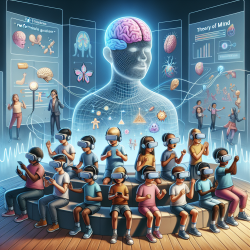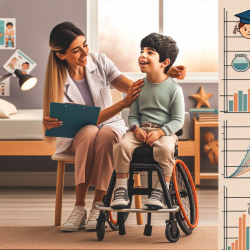The 16th Academic Conference of Speech-Language Pathology and Audiology of the Bauru School of Dentistry, led by Dr. Ktia de Freitas Alvarenga, presented numerous groundbreaking research findings that have significant implications for practitioners. This blog will focus on key insights from the conference and provide actionable steps for improving outcomes for children through data-driven decisions.
One of the most compelling studies presented was on auditory processing in unilateral hearing loss. Salvador et al. (2009) investigated a 17-year-old male with profound unilateral sensorineural hearing loss. Their research concluded that while individuals with such conditions can achieve similar scores on central auditory tests as those with normal binaural hearing, the benefits of binaural stimulation for central auditory abilities are significant. This suggests that practitioners should prioritize interventions that enhance binaural hearing experiences for such individuals.
Another notable study by Giordano and Colella-Santos (2009) emphasized the importance of early auditory monitoring in infants, particularly those with risk indicators for late or progressive onset hearing loss. Their research, involving 65 infants, found that auditory development delays were present in a significant percentage of infants at various age milestones. This underscores the necessity for continuous auditory monitoring and early intervention to prevent long-term developmental issues.
Ortalan et al. (2009) provided valuable insights into audiological findings in patients with facial paralysis. Their study of 18 individuals revealed that mild hearing loss and downward curves in audiometry were common. This highlights the importance of comprehensive audiological assessments in patients with facial paralysis to identify and address potential hearing issues early.
In the realm of tinnitus, Ortalan et al. (2009) found that a significant number of patients with tinnitus also exhibited mild hearing loss. This reinforces the need for regular hearing assessments in tinnitus patients to ensure timely interventions and better management of the condition.
Sudden deafness was another critical topic addressed by Ortalan et al. (2009). Their research indicated that sudden deafness often comes with varying degrees of hearing loss and associated symptoms like tinnitus and vertigo. The study's findings stress the importance of prompt audiological evaluations and tailored interventions to improve patient outcomes.
Otubo et al. (2009) explored occupational hearing loss and found that high-frequency audiometry could serve as an early detection method for auditory alterations in workers exposed to high noise levels. This suggests that incorporating high-frequency audiometry in regular health check-ups for such workers could lead to earlier detection and prevention of significant hearing loss.
Finally, Santos and Couto (2009) examined the expectations and satisfaction of elderly new users of hearing aids. Their findings revealed that while most elderly individuals had high expectations for improved communication, their satisfaction levels varied based on specific aspects of hearing aid use. This indicates that personalized counseling and realistic expectation management are crucial for successful hearing aid adaptation in the elderly population.
In conclusion, the research presented at the 16th Academic Conference of Speech-Language Pathology and Audiology offers valuable data-driven insights that practitioners can implement to enhance outcomes for children and other patient populations. By integrating these findings into practice, speech-language pathologists and audiologists can make informed decisions that lead to better developmental and rehabilitative outcomes.
To read the original research paper, please follow this link: ABSTRACTS OF THE WORKS PRESENTED AT THE 16th Academic Conference of Speech-Language Pathology and Audiology of the Bauru School of Dentistry Dr. Ktia de Freitas Alvarenga.










